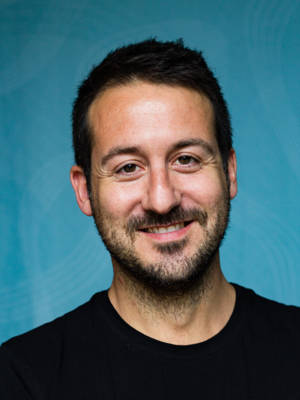The collaborative research Network INTERSECT creates a cross-European structure for advancing the knowledge on the many facets of the interplays between technological developments, security practices, and societal changes in Europe. It provides an open forum in which established and early career academics working on related issues meet and develop research ideas while engaging with civil society.
As technological developments challenge common perceptions of space and time, they impact the way security is practiced and open up a myriad of questions about the values that sustain our societies and the principles that govern them. With its online presence, academic publications and public events, INTERSECT will contribute to public and academic debates around topics such as surveillance, public-private relations and hybrid rule, cybersecurity, use of drones and artificial intelligence, data retention, or suspect profiling.
New challenges to the security vs freedom equation
In recent years, several technological advances have impacted the way security practices occur in Europe and have brought new challenges to the security vs freedom equation. Increasing robotisation and automation, mounting use of digital metadata, growing reliance upon signal intelligence and web-based profiling, and advances in face-recognition devices, are some of the practices that are changing the way security is practiced. Technological developments with ramifications into the security domain defy our understandings of time and space, and pose new challenges to our societies. Who do we target when we want to respond to a cyber-attack? What are the ethical considerations behind the use of semi- and full-autonomous weapons? How can law respond to technological developments? How can privacy be maintained in an era of mass-surveillance?
These practices pose serious questions about the democratic legitimacy of highly sensitive policies and about the role of the governments that ultimately are responsible for them. Yet, at the same, they open up the question of whether ‘traditional’ democratic as well as legal oversight requires artificial intelligence expertise to seriously instantiate effective checks and balances. These dynamics are certainly not new, as the pursuit of security has always triggered technological developments and used cutting-edge scientific knowledge. Yet, over the last decades, additional challenges were brought by the technology-security nexus’ approximation to the private sector and to the latter’s increasingly important role in security provision and governance. Authors looking into particular EU security/ised issues have problematized the role of private actors, expert bureaucrats, and novel forms of policy-making based on technocratic regulation where the governance of security escapes democratic control.
Implications for research
In front of new technical conditions of possibility, policy makers, expert bodies, intelligence operatives and forensic investigators both bring the practice of security to the borders of the legal, and exploit the grey areas in which law and regulation have not yet accompanied the technological developments. From a scholarly perspective, this has implications for criminology, constitutional theory, political theory, human geography, law and fundamental rights, and security studies more broadly.
INTERSECT aims to explore these dynamics. It will map the main developments currently taking place in Europe in fields such as surveillance, public-private relations and hybrid rule, cybersecurity, drones, data retention, or suspect profiling, to name but a few, and will investigate them from several theoretical angles. It will devote attention to areas such as border surveillance and security, counter-terrorism, urban planning and criminal investigation. The network has also the underlying objective of raising public awareness of these practices that normally are implemented without any kind of public scrutiny.
These objectives require theoretical and empirical input from diverse angles. The structure of the network, as well as the individuals and institutions that have already agreed to participate in it, reflect the intention of approaching the topic from different perspectives and a willingness to engage the civil society.
Network Coordinators
Bruno Oliveira Martins - Peace Research Institute Oslo
André Barrinha - University of Bath
Mireille Hildebrandt - Vrije Universiteit Brussels
Marieke de Goede - University of Amsterdam
Karen Lund Petersen - University of Copenhagen
INTERSECT will engage with three civil society organization whose work addresses legal and ethical implications of EU and national security policies from the perspectives of European and international law, and protection of fundamental rights. Representatives of the three groups will participate in the network and will be part of its activities.
The European Forum on Armed Drones (EFAD) is a civil society organization that exerts advocacy and lobbying at the EU, UN and national capitals in favour of high ethical and legal standards in using this armament.
http://statewatch.org/**Statewatch** is a non-profit-making voluntary group founded in 1991. It is comprised of lawyers, academics, journalists, researchers and community activists. Its European network of contributors is drawn from 18 countries. Statewatch encourages the publication of investigative journalism and critical research in Europe in the fields of the state, justice and home affairs, civil liberties, accountability and openness.
https://airwars.org/**Airwars** is a collaborative, not-for-profit transparency project aimed both at tracking and archiving the international air war against the Islamic State and against other terrorist targets.
Former Events:
Second INTERSECT Workshop, 6-7 November 2018, University of Bath: Science and Technology Studies and the Study of Europe
Making sense of changing relationships between technology, security and society in Europe - Europe of Knowledge - a review of the Second INTERSECT Workshop.
First INTERSECT Workshop, 25-26 October, Malmö University: Rethinking the Technology - Security Nexus in Europe
INTERSECT is a Research Network funded by UACES, the University Association for Contemporary European Studies.
UACES - Logo

Photo: UACES







